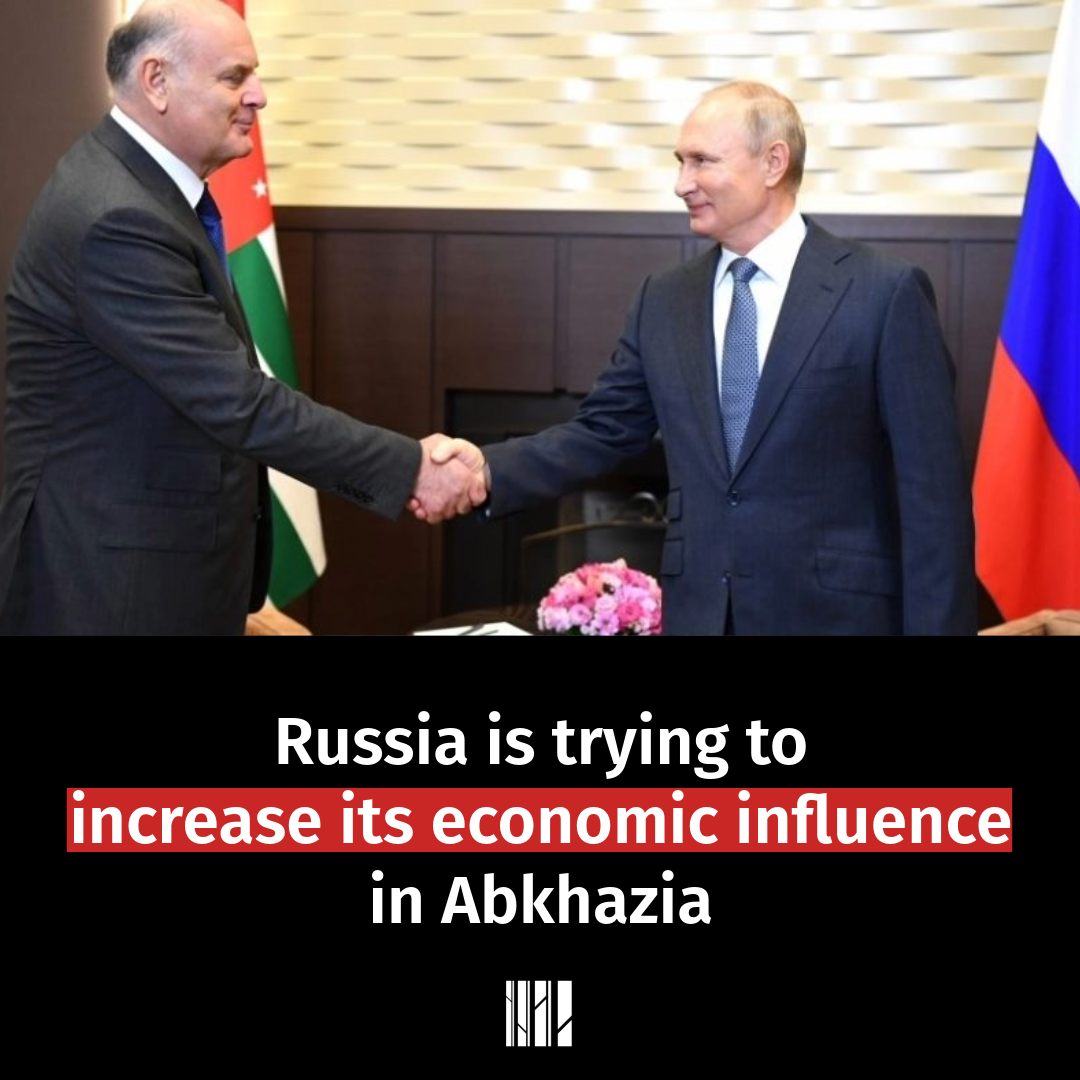საერთო ცხელი ხაზი +995 577 07 05 63


Russia continues to accelerate the exploitation of Abkhazia's economic resources and deepens its economic influence in the region. In recent days, the draft Russian-Abkhaz agreement on the implementation of investment projects by Russian companies has been actively discussed in the political and public circles of Abkhazia, which envisages the establishment of large-scale tax and economic benefits for Russian investments in Abkhazia. If such agreements are accepted, the Russian Federation will dramatically strengthen its economic influence on the territory of Abkhazia, which, in addition to increasing Abkhazia's economic dependence on Russia, will also have a negative impact on the local economy and the social interests of the population.
The draft of the Russian-Abkhazian agreement on the implementation of investment projects by Russian companies has already been submitted to the de facto parliament of Abkhazia by Aslan Bzhania for approval. The document provides for a number of benefits to create a favorable environment for Russian investments, including:
In addition, the investor also has the right to receive the quota of foreign employees and compensation for losses from the budget of Abkhazia in case of contractual obligations are not adequately fulfilled. A legal entity that invests in Abkhazia and to which the benefits stipulated in the agreement will be extended can only be a branch of a Russian company. Moreover, the money that will be invested in Abkhazia will not go through Abkhazian banks, but the contract provides for the opening of a Russian bank in Abkhazia.
In Abkhazia they are already talking that this agreement serves only Russian interests and it will not bring economic benefits to the local population. Moreover, it can be fatal for the development of the local economy, because during the 8-year concession period, the already weak Abkhazian business will collapse under conditions of unequal competition with Russian business. Part of the public debates is also concerned that six months before the de facto presidential elections, Russia is attacking the current de facto government with maximum force to advance its interests, and it is now important for Bzhania to show loyalty to Russia and in this way to receive support from Moscow.
In parallel with this agreement, the de-facto president of Abkhazia, Aslan Bzhania, is trying to speed up the so-called ‘apartment law’, which implies the possibility of foreigners to build and buy real estate in Abkhazia. Although the de facto government is trying to convince the population that this is aimed at revitalizing the economy of Abkhazia, people in Abkhazia believe that the adoption of this bill will lead to a number of negative consequences, including demographic changes and an increase in the number of Russians in the region, a surge of uncontrolled construction in the absence of urban planning, putting local investors people in an unequal position, increasing real estate prices, etc. Due to the strong protests in Abkhazia related to this bill, its discussion in the "Parliament" has been suspended, although the de-facto president is trying to speed up the process by limiting it geographically to Ochamchiri, Tkvarcheli and Gali regions.
These initiatives are a continuation of the ongoing annexation processes in Abkhazia, which Russia particularly activated as a result of the economic sanctions imposed on it after the full-scale war in Ukraine. Russia in crisis is trying to appropriate strategic resources and facilities in Abkhazia (Sukhumi Babushara airport, Bichvinti state cottages) and seize peripheral markets for its own interests, which will lead to complete economic annexation of Abkhazia region. In addition to the fact that this process will have serious political implications for both Sukhumi and Tbilisi (especially in light of Russia's high interests in establishing military infrastructure and control over the Black Sea and the South Caucasus), it will have a negative impact on the region's economy and the well-being of the local population.
Unfortunately, just as with the annexation taking place in Abkhazia in recent years, in this case too, the Georgian government does not respond critically to the events taking place in Abkhazia and tolerates the difficult processes in the region with silence and inaction.
The Georgian authorities do not have a vision of how to offer new and effective legal, social and economic alternatives to Abkhazia in the changed geopolitical context after the war in Ukraine. This is especially important now, when the dissatisfaction of the Abkhazian society towards Russia's growing influence, appropriation and control of resources is growing, and Georgia is given new opportunities to make significant progress on the path of European integration and to transform conflicts.
The website accessibility instruction